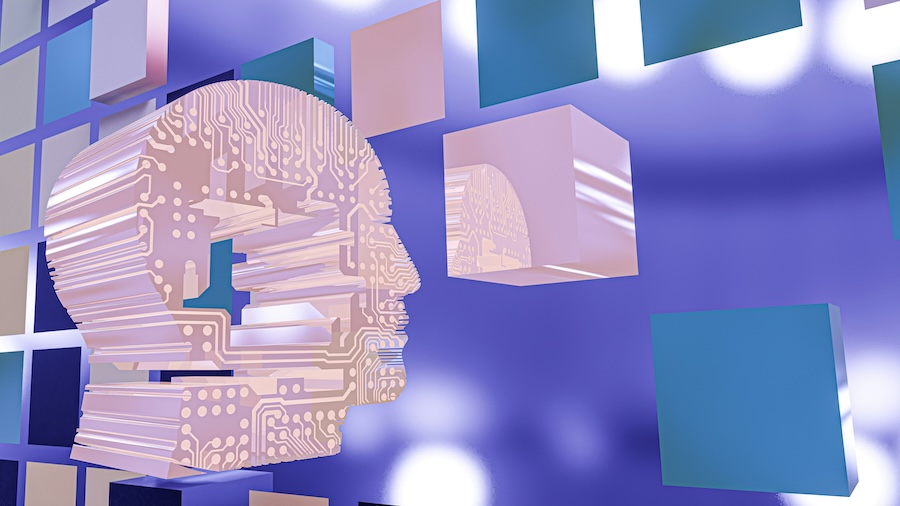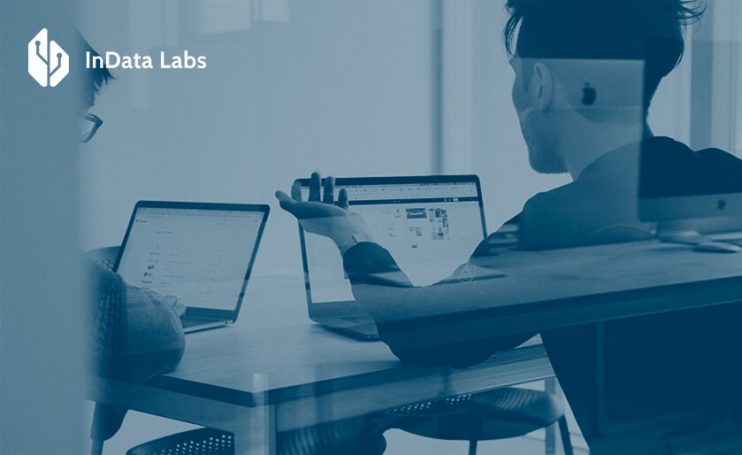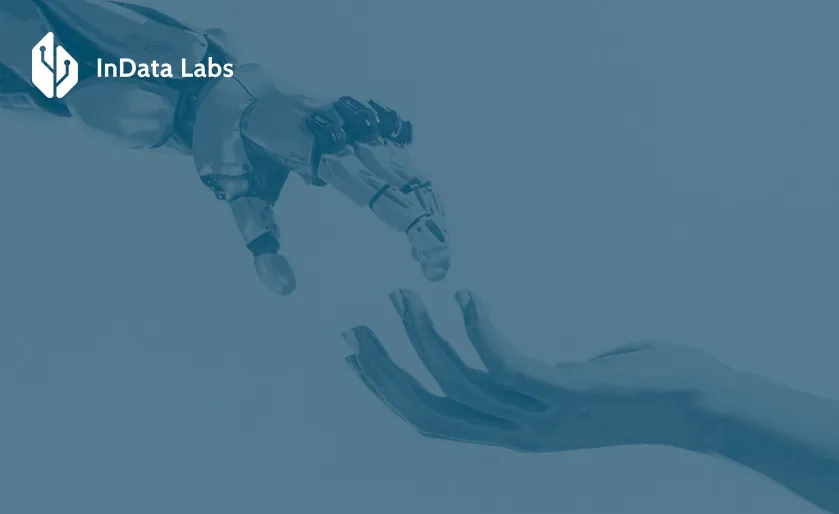AI decision making serves as the future of intelligence in businesses. For several decades, the backbone of modern business has been data. It has helped businessmen and entrepreneurs shape their decisions.
Besides, it allowed them to learn in-depth about their customers. However, with all the data comes a price; the human brain cannot process it all. That is where artificial intelligence (AI) and its decision making in business intelligence come in.

AI automated decision making allows businesses or companies to make faster, accurate, and consistent decisions by capitalizing on datasets with AI. Artificial intelligence can analyze large datasets without error. This helps business teams to focus better on work relevant to their field.
Decision makers of companies believe in AI available in terms of machine learning, natural language processing, and computer vision. They are the most trusted aspects of any business ground today to increase profits and reach the set goals. Make business decisions more effective with AI. Learn when and how to complement human decision-making powered by big data impact and artificial intelligence.
What is artificial intelligence?
Artificial Intelligence or AI refers to a machine’s ability to replicate human learning and its cognitive functions. AI aims at prompt problem-solving and decision-making processes without human errors. In technological terms, they refer those machines to as intelligent bots.
With the advancements in technology and AI capabilities, the world of AI has broadened over the years. Today, AI can be experienced in three recognized levels of the AI spectrum.
- Assisted intelligence: It focuses on automating basic tasks. For instance, machines in the assembly lines.
- Augmented intelligence: With augmented intelligence comes symmetry. It is a two-way process. The aim is for machines to learn from human input. Humans in turn base their decision accuracy on intelligent information.
- Automation intelligence: Simply put, it includes machines automating the complete process, with humans out of the loop. For instance, autonomous robots and self-driving cars.
What is AI decision making?
A popular question is what is decision making in AI? AI in business decision-making is of utmost importance when data processing is carried out completely or in part by an AI platform. With no human in the picture, this process helps to quantify data, making accurate predictions and precise decisions.
AI can handle anomaly detection, data crunching, complex analysis, optimized decision making, and spotting trends. The final decisions are then either completely automated or taken over by the human end.
Take a look at the model of AI decision making:

Degrees of decision making
- Decision support – With the help of predictive, diagnostic, or descriptive analytics, humans can decide with accuracy. The advantage lies in combining human intelligence with data-driven insights. Common sense and expertise when combined may make the best out of AI in businesses.
- Decision augmentation – It makes use of predictive or prescriptive analytics to recommend multiple decision alternatives. The synergy of AI capability and human knowledge leads to rapid analysis of large data volumes, reducing complexity.
- Decision automation – Like decision augmentation, decision automation relies on prescriptive or predictive analytics. Humans benefit from its scalability, speed, and consistency in decision-making.
When take advantage of AI in decision making?
Whether a decision has to be AI automated, augmented, or supported depends on two factors. First is the time limit within which the organization will need to decide. The second factor is its complexity.

Source: Unsplash
The dimension of time shows the span between when an organization detects an opportunity or threat and when it acts on it. The period varies for the work at hand. For instance, high-frequency stock trading may just take a few microseconds. Pay decisions may take a few weeks to make relevant decisions. It may even stretch up to a few months or years for strategic acquisition or merger.
Based on the Cynefin framework, the complexity may vary on a continuum, as stated below:
- Simple situations are usually predictable and simple. They operate on a simple cause-and-effect relationship. For instance, processing payrolls.
- Complicated circumstances require more expertise in problem-solving or analysis to determine the cause and effect. For instance, marketing campaigns and asset management.
- Complex situations encompass multiple relationships and interdependence. An effective analysis may therefore require a holistic or systemic approach. Besides, simulations are necessary to understand how decision making in business intelligence affects widespread elements. For example, supply chain distributions.
- Chaotic situations are caused by unclear causes and effects or dynamic interdependencies. Even the smallest changes may cause unreasonable affects. For instance, natural disasters or stock market crashes. Therefore, taking accurate decisions requires more practical learning and experimentation.
How AI may change decision making?
Artificial intelligence is the epitome of businesses because of its learning capability. Higher data-driven decisions are equivalent to better learning. AI is capable of training itself to build large language models of data collections. These models may make accurate decisions and categorization over provided data. Likewise, the LLM software solutions work on data in real-time making predictions, categorizations, and recommendations. This in turn helps to make better commercial decisions.
Well-known companies like Amazon make use of customer transaction data. Using this approach, companies can learn better about the segment of customers buying certain products together. This model helps to recommend complementary products on the websites as well. It allows websites to provide better customer recommendations and increase purchases.
Until now, the central point of decision-making has been humans. Human analyzed data used to decide which customers to target, or what cost would a product launch have to bear. Besides, marketing campaigns were too risky in this scenario.

Decoding the impact: Key statistics on harnessing AI for decision making
Based on the McKinsey survey, the adoption of artificial intelligence (AI) has seen remarkable growth in recent years. Since 2019, the number of organizations embracing AI has more than doubled. However, the proportion of companies utilizing AI has plateaued between 50 and 60 percent for the past few years. Despite this, a set of companies that have effectively harnessed AI are experiencing higher financial returns, establishing a significant lead over their competitors.
Looking at the numbers, in 2017, only 20 percent of respondents reported adopting AI in at least one business area. Today, in 2024, that figure has risen to 50 percent. Alongside the increased adoption, the average number of AI capabilities used by organizations has also doubled. In 2018, companies utilized an average of 1.9 AI capabilities, which has now risen to 3.8 in 2023. Robotic process automation and computer vision have consistently remained the most widely deployed purpose of AI, with natural-language text understanding advancing to a prominent position just behind computer vision. The numbers make it clear which AI system will continue to analyze a problem.
When it comes to the top use cases for AI, the rankings of AI for decision-makers have remained relatively stable over the years. Optimization of service operations has consistently held the top spot, followed by use cases such as the creation of new AI-based products, customer service analytics, customer segmentation, and customer acquisition. These use cases highlight the diverse ways in which AI is leveraged to drive operational efficiency and improve customer experiences.

Source: Unsplash
Furthermore, the level of investment also shows the prominence of artificial intelligence decision-making. According to the survey, the level of investment in AI has increased alongside its growing adoption. In the past, only 40 percent of organizations using AI allocated more than 5 percent of their digital budgets to AI. Now, over half of the respondents report this level of investment. Looking ahead, 63 percent of respondents anticipate increased investment in AI over the next three years, reflecting the growing recognition of AI’s potential.
The areas where companies see value from AI have also evolved. While manufacturing and risk were prominent in marketing and sales, product and service development, and strategy and corporate finance are now the functions reporting the biggest revenue effects. Supply chain management stands out as the area where companies have realized the highest cost benefits from AI.
Despite the progress in AI adoption and investment, there have been no substantial increases in reported mitigation of AI-related risks since 2020, which is another important factor when it comes to artificial intelligence for decision-making. Organizations still need to address concerns and challenges associated with AI implementation to ensure its responsible and ethical use.
In summary, Artificial intelligence in decision-making has witnessed significant growth, with organizations increasingly leveraging AI capabilities to drive operational efficiency and generate financial returns. Investment in AI has also risen, and the areas where companies see value from AI have expanded. However, mitigating AI-related risks remains an ongoing challenge that organizations need to address to fully capitalize on the benefits offered by this transformative technology.
Benefits: artificial intelligence & decision making
Artificial intelligence is extremely important for the future. It forms the foundation of computer learning. Through artificial intelligence, computers can harness massive amounts of data. Besides, the learned intelligence may make optimal decisions in a few fractions of time, unlike humans. Today, AI is becoming responsible for everything; be it medical breakthroughs on cancer research or innovative research on climatic change.
Let’s get an overview of the advantages of AI before moving on with its significance in different fields:
- Enhances the decision-making process in businesses: It allows businesses to take immediate decisions by a quick analysis of large datasets.
- Boosts sales and marketing campaigns: Decision-making applications in artificial intelligence like Natural Learning Process allows businesses to understand how customers interact with different brands, tone, and words that are most appealing to them.
- Better understand target customers: AI tools like algorithms with machine learning and chatbots offer a better understanding of customer satisfaction and expectations.
- Improves decisions of companies dealing with complex data: AI uniquely positions itself to make sense out of large data quantities. It is especially true when the outcome is clearly defined and measurable.
AI decision making: Examples
Read further to learn how artificial intelligence helps in decision making.
AI and business decision
Before the revival of AI in business decision making, executives used to rely on inconsistent and incomplete data. With AI came data-based models and simulations to look up to. Today, the AI system begins from scratch, feeding on a regular big data business diet.
Businesses put augmented intelligence into action. Eventually, it offers executives, revolutionary models, as the basis of their decision-making process. Several AI applications enhance this decision-making capability. Listed below are some of them. AI makes use of automated cognitive as well as physical tasks. It allows humans to make faster and more accurate decisions. Simply put, it automates decision-making with some human intervention.

Source: Unsplash
AI enhances automation and reduces human-intensive labor and tedious tasks. For instance, smart weather forecasting. Today, AI-powered tasks are known to bridge the gap between climate and data scientists.
With the help of AI, companies are better equipped to fight disasters using AI decision-making algorithms. On the bright side, the world has witnessed the groundbreaking impact of AI on humans and the economy. AI is now working as a capital hybrid, aiding the growth of the economy and humans.
Research was set by the McKinsey Global Institute. It suggested the delivery of 13 trillion dollars of additional output by 2030. This is estimated to boost the global GDP by 1.2 percent per year. This, alongside other researchers, believe AI to have a revolutionary impact on the man-made decision-making process.
Marketing decisions
Companies often face several complexities when making certain marketing decisions. Precisely, customer-driven market complexities included in decision-making are increasing every day. The customer needs and desires must first be understood. Eventually, the products must be aligned with the relevant needs and desires.
Grasping the dynamic consumer behavior is also crucial for long-term and short-term marketing decisions. Appropriate AI modeling and simulation methods may help people to gain better insights into the buyers’ viewpoints.

Source: Unsplash
Artificial intelligence techniques for rational decision-making, like decision support systems, may help predict customer behavior better. Using this system allows AI systems to support real-time decisions and updated gathering, forecasting, and analysis of market trends.
Customer relationship management
AI has improvised and added more flexibility to customer relationship management. It has automated several functions including, data recording, contact management, data analysis, and lead ranking.
Besides, the buyer’s persona model by AI can predict a customer’s lifetime value. These features help marketing teams to work more fluently and efficiently.
Recommendation system
This AI system was first put to use on music content sites. Ever since the recommendation system has extended to different industries. It works by first learning about a user’s content preferences.
Subsequently, it pushes the content forward that fits the preferences. This in turn, reduces the bounce rate. In addition, the information learned by the AI system may better target relevant content.

Source: Netflix
Automation efficiency
AI-generated automation efficiency has gone past assembly lines in business processes. Business functions, such as marketing and distribution, involve automated efficiency. AI has hastened processes and provided decision makers with reliable insight.
In marketing, humans may get reliable insights on customers. This enhances customer interaction. Automated market segmentation and campaign management have enabled effective decision-making.

Source: Unsplash
One of the main features of a good CRM application is distribution automation. This clubbed with AI has been of key importance for several retailers. With the support of AI, retailers may monitor and control the market. Besides, they may predict and respond to demand products more accurately.
- Social computing – AI can simulate, predicte and analyze human behavior. It allows marketing professionals to understand the social behavior and dynamics of the target market. These applications may data-mine and understand social media networks.
- Opinion mining – It is an AI-assisted data mining that focuses on finding and understanding opinions and feelings through a web search. This allows marketers to better understand how the targeted audience views a product.

Source: Unsplash
Manual help and manual mining are pretty time-consuming. AI functions to reduce reliable analysis and search functions. This method is highly used in search engines that rank customer interest on specified websites, products, or web pages.
In addition, hyperlink-based AI is also employed. The intelligent bots seek out clustered linked pages and are perceived as groups sharing common interests.
Future impact of AI
Technically, there is no major industry other than modern AI. Today, narrow AI is known to perform objective functions through data-trained models. It either falls into the category of machine learning or deep learning.
In the last few years, robust IoT connectivity, quicker computer processing, and the proliferation of connected devices have ramped up data collection and analysis. Some sectors are exploring AI whereas others are veteran travelers in this field. There is a long way to go.
The impact of artificial intelligence continues to make its way through our daily lives. Let’s look at some of their impacts.
- Transportation
When it comes to automating transportation, self-driving cars top the chart. In a decade or two, autonomous cars will take over transport optimization.
- Manufacturing
AI-fueled robots work along the human workforce to perform a limited range of tasks. For instance, stacking and assembling. Besides, predictive analysis sensors help to run the equipment more efficiently and prevent failures.
- Healthcare
In the era of the AI-incipient field of healthcare, diseases are diagnosed more accurately and quickly. Besides, it has sped up and streamlined the process of drug discovery. Virtual nursing assistants are taking over round-the-clock patient monitoring. Not to mention, big data development and consulting have given rise to more personalized patient assistance.

Source: Unsplash
- Education
AI research has revolutionized learning with digitized textbooks and teachings. Human instructors are assisting early-stage virtual tutors. Besides, facial analysis gauges emotions felt by students. This helps to determine and tailor-make experiences to suit individual needs.
- Media
Today, journalism is also harnessing AI and is continuing to benefit from it. Decision making applications in artificial intelligence like the natural learning process are used to make quick sense of automated insights and financial reports.

Source: Unsplash
- Customer assistance
AI assistants and chatbots are better at understanding nuance and context. For instance, it helps to quickly make human-like call appointments with ease.
Can artificial intelligence replace executive decision making?
Correctly collected and analyzed data is capable of providing unparalleled insights into every business. Modern companies, however, face one issue – they drown in overflowing data. The human force cannot keep up with the collected data.
It’s not a surprise that databases and spreadsheets don’t cut anymore. Now, the question is whether humans will be in charge or will machine take over data-driven decision-making.
Can AI make better decisions than humans? Can AI make moral decisions? This is what Harvard Business Review had to say in this matter.
- Humans aren’t capable of leveraging all the data.
Human force accumulates every aspect of a dataset. For instance, relationships, insights, and patterns. They manage large data amounts by summarizing them. It is humanly impossible to process millions or billions of records. Human minds cannot link relations among data elements, which are considered as the key to any decision making.
- Humans allow biases to take control over them.
Humans prioritize important data rather than what it states. Contrary to AI, humans consider data as linear and hence cannot process them in aggregates. Besides, AI can collate data without letting emotion cloud their judgments and make errors. However, it is not a smart business move to leave all the work to machines.
In reality, human decision-making has a major influence on making decisions. Be it a great marketing copy, an innovative marketing strategy or a dedicated customer support decision. A decision-making model powered by human intelligence and AI together can make the cut.
Conclusion
AI decision-making is revolutionizing business intelligence by analyzing vast datasets to improve decision-making processes. Machine learning, natural language processing, and computer vision are key components of AI that aid in faster and more accurate decision-making.
From automating basic tasks to completely autonomous decision-making, AI offers various levels of assistance depending on the complexity of the situation. Organizations are leveraging AI capabilities in areas like marketing, sales, product development, and strategy to enhance operational efficiency and generate financial returns. However, addressing the risks associated with AI implementation remains a challenge that businesses must overcome to fully capitalize on its benefits.
Author Bio
Olivia is a content strategist at Outreacheo. She has been working in social media and content marketing for five years. She specializes in the health, tech, innovation, and travel sectors. When she is not writing, you will find her teaching math, and trying new recipes.



